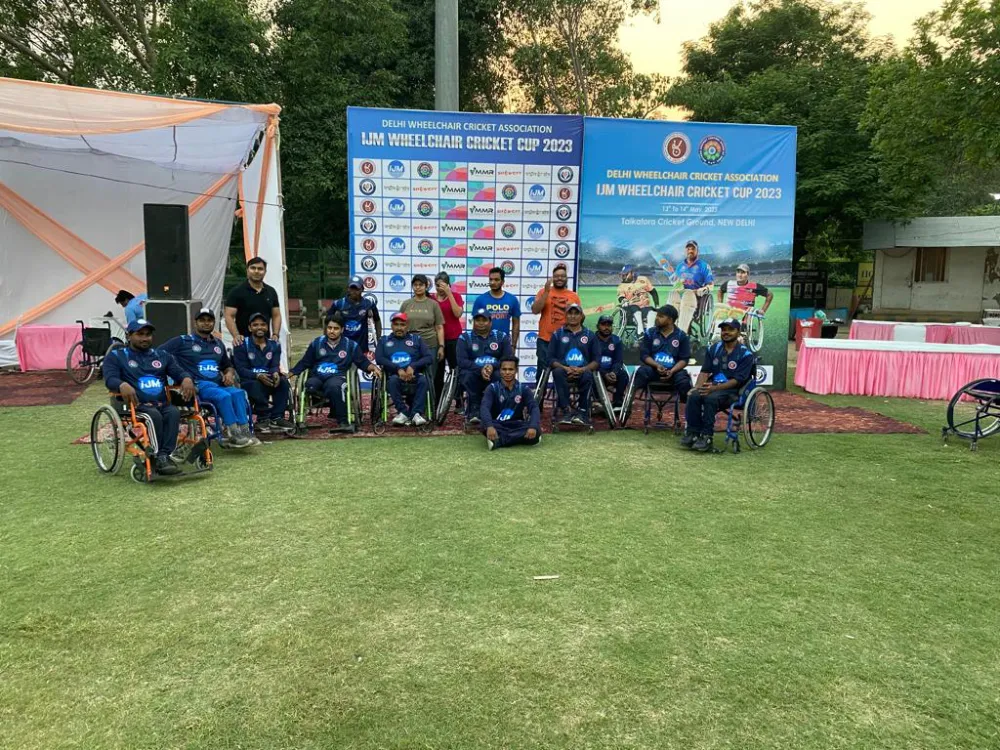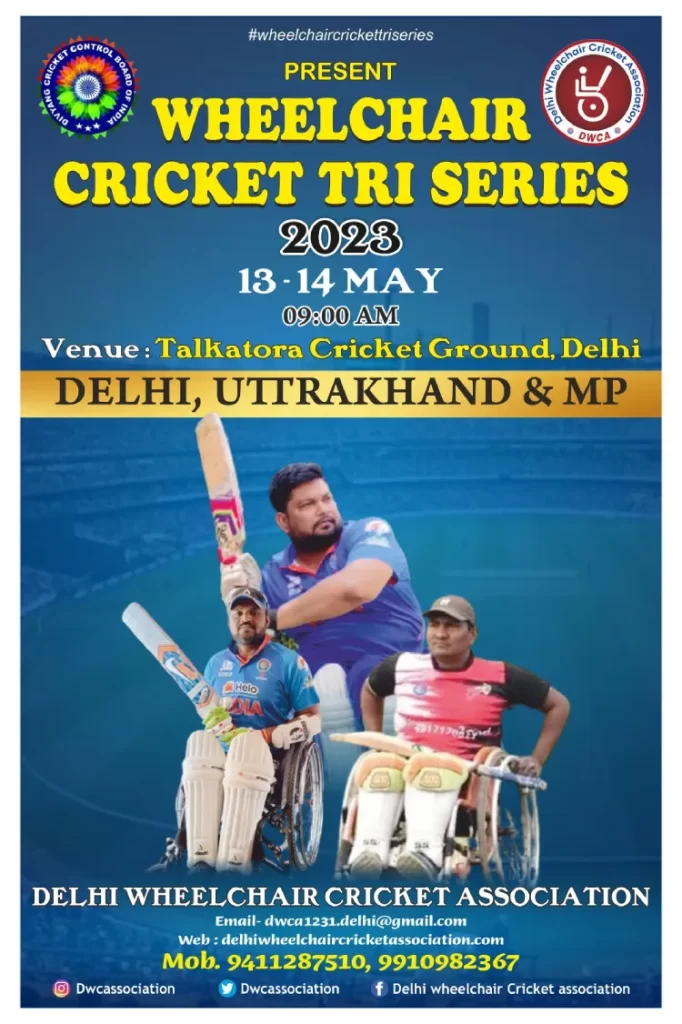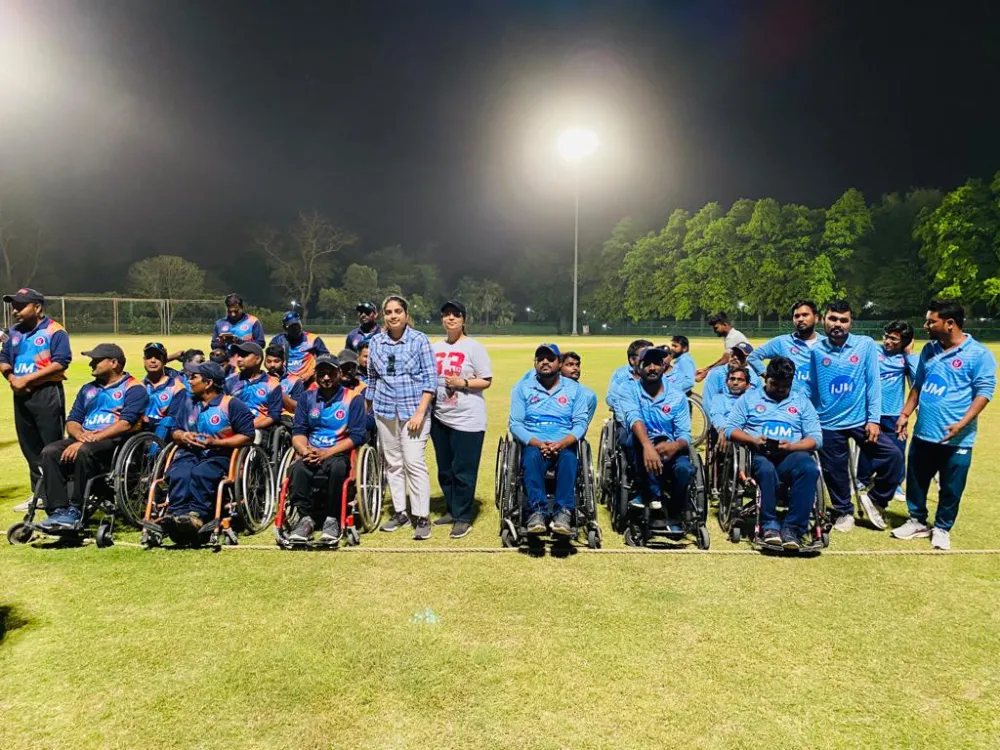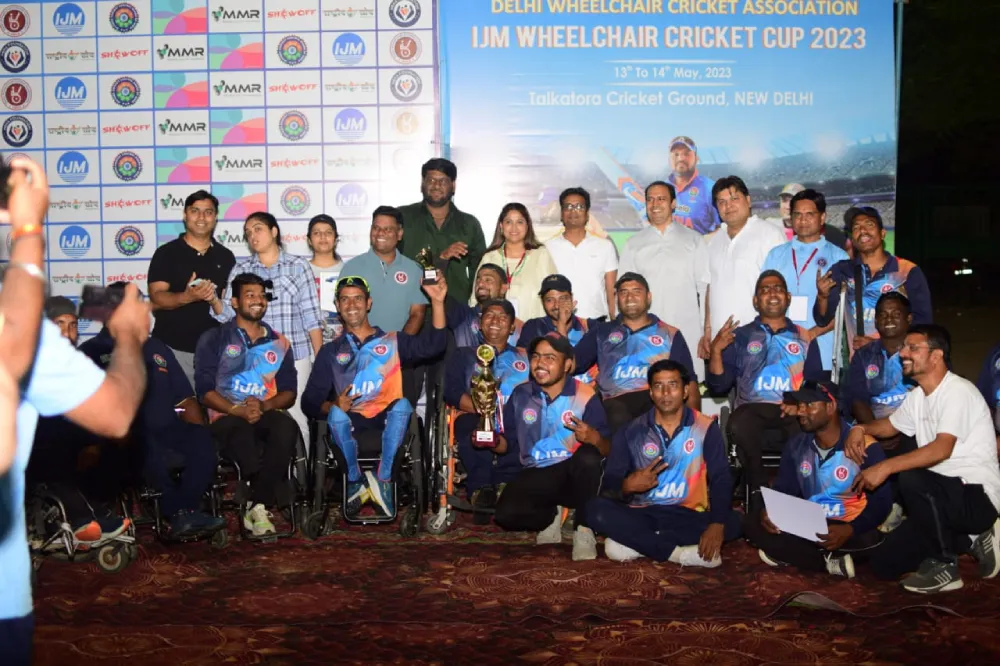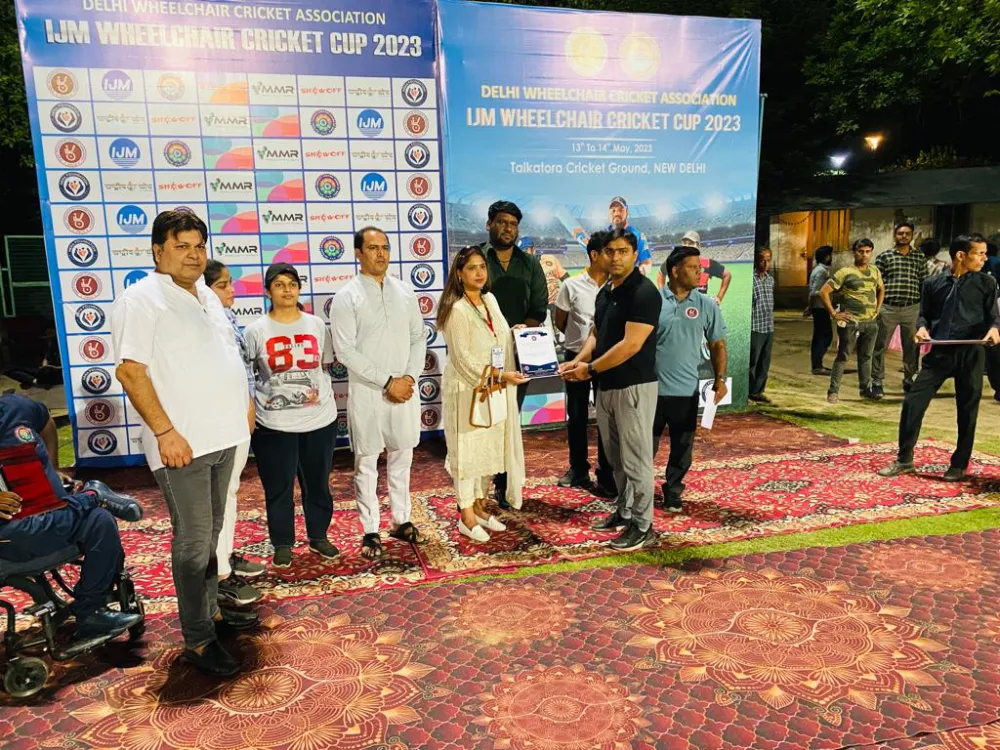Wheelchair cricket is an adaptive sport that brings the excitement and competitiveness of traditional cricket to individuals with physical disabilities. A day and night wheelchair cricket match was an innovative event designed to provide an inclusive platform, where athletes can showcase their skills in both daylight and artificial lighting. Incorporating physiotherapy support into such events is crucial to ensure the safety, performance and well-being of the participants.
Day and Night Wheelchair Cricket Match
The match took place on May 13th and 14th 2023 at the Talkatora Grounds, Delhi. Teams comprised wheelchair-bound athletes from Delhi, Uttarakhand, and Madhya Pradesh. The game followed the standard T20 format, with two innings per team, each limited to 20 overs. The match started in the morning and continued into the evening, with a break for refreshments and lighting adjustments.
Key aspects of the event
– Venue: The venue was wheelchair accessible- with ramps, smooth surfaces, and appropriate restroom facilities.
– Transport: Special transportation arrangements, including wheelchair-accessible vehicles, ensured all athletes could reach the venue comfortably.
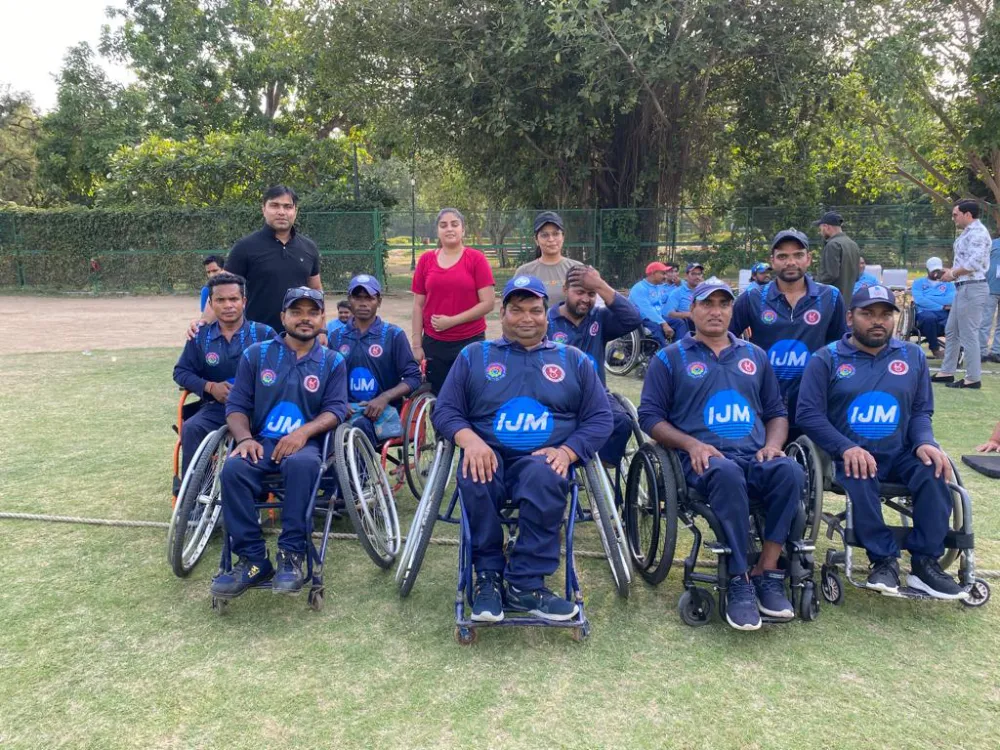
– Seating: Designated areas were earmarked for athletes, staff, and spectators with disabilities.
– Pitch and Boundary Adjustments: The pitch was slightly shortened, and boundaries adjusted to suit the mobility constraints of the players.
Physiotherapy Support
Pre-match preparation involved guided warm-up sessions led by NRF professionals, to ensure muscles were properly prepared for physical activity. Initial physical assessments helped understand each athlete’s specific needs and limitations, ensuring personalised support during the match.
During the match, physiotherapists were on-site to provide immediate attention to any injuries or strains. They ensured athletes stayed hydrated and maintained energy levels through proper nutrition, advising on dietary needs. Quick access to first aid for minor injuries and emergency medical support for more serious incidents was also provided.
Many individuals with spinal injuries cannot perspire and thus struggle to control their body temperatures. They are prone to overheating in summer and hypothermia in cold weather. Thorough precautions were taken for heat stroke during summer matches. For example, 40 year old Mr Harish, a Delhi batsman, experienced exhaustion and suffocation during play. The NRF team provided ORS and cooling techniques, helping him recover quickly. Players were advised to stay hydrated and use cold towels and wet caps.
Wheelchair cricket requires significant upper body strength and endurance, especially in extreme weather conditions. Chronic low back pain due to prolonged sitting was a common issue. Players were advised to strengthen upper back muscles and practice shifting body weights.
Post-match recovery included structured cool-down routines to reduce muscle stiffness and aid recovery. Scheduled follow-up sessions were arranged for athletes needing continued physiotherapy or rehabilitation.
The day and night wheelchair cricket match, heightened by comprehensive physiotherapy support, is not just a sporting event, but a celebration of resilience, determination, and inclusivity. Providing a platform for athletes with disabilities to compete and excel, and ensuring their physical well-being through dedicated physiotherapy services, pave the way for a more inclusive and supportive sports culture. This initiative highlights the importance of adaptive sports in fostering physical, mental, and emotional health and serves as a beacon for similar endeavours.
The most challenging match was the final between Madhya Pradesh and Delhi. Despite the heat and fatigue, both teams were motivated and focused. The physiotherapy team expedited stretching sessions and applied supportive tapes to prevent injuries. Madhya Pradesh won the series, with Delhi being the runners-up. Manoj Parmar was named the man of the series.
Of course, there are several downside issues where specially abled athletes are concerned : limited training resources and opportunities vis-vis able-bodied cricket; less or nil media attention; lack of public recognition and awareness; and inadequate or no support for the players and the sport : all this impact sponsorship and funding, with prize money being most dismal. Addressing these challenges requires concerted efforts from sports organizations, governing bodies, and the community, to ensure that wheelchair cricket players have the support and resources they need.
Organizers, including Vicky Lamba, acknowledged the efforts and professionalism of the NRF team during the two-day event with a token of appreciation.
